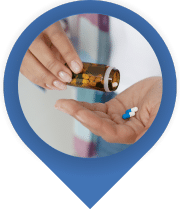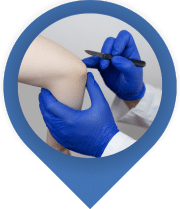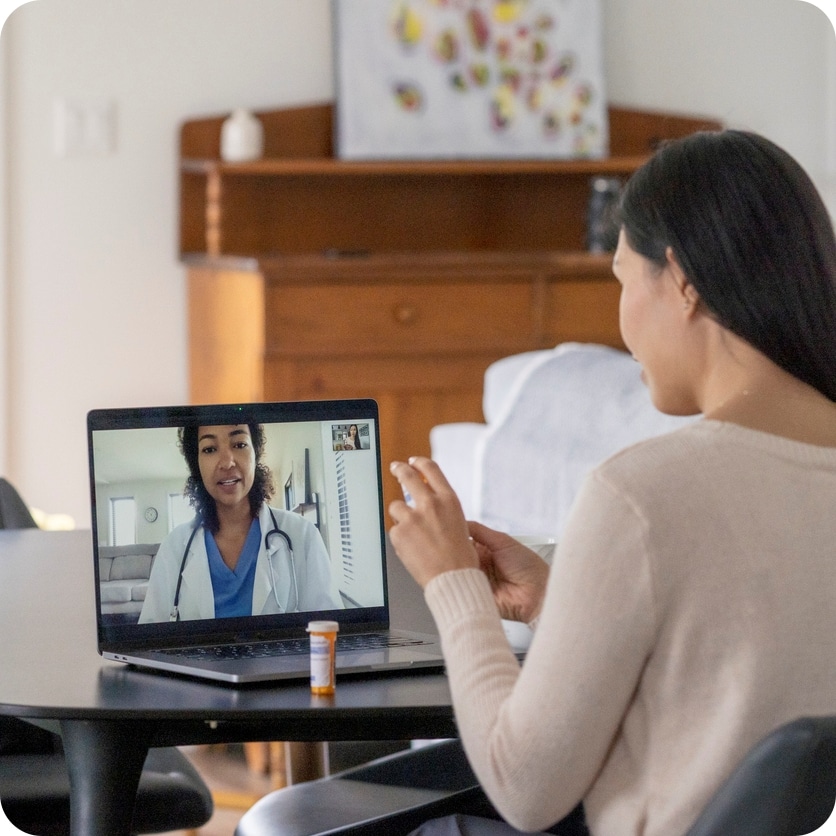The Latest Healthcare News
Check out our blog to learn more from our team about the latest medical advancements, health tips, and primary care news.

Insect bites are a common occurrence and can range from minor annoyances to significant health concerns, depending on the type of insect and reaction. At AllCare, we are committed to providing comprehensive care for various insect bites, ensuring effective treatment and allergy prevention strategies.
Different insects cause various types of bites, each with its unique characteristics, symptoms, and potential complications. The most common insect bites and the ones treated at AllCare include:

Also called: Bug bites, stings, bite reactions, localized skin reactions
Symptoms of insect bites and stings can vary depending on the insect, your skin type, and how your body reacts. Most reactions are mild and affect only the area around the bite or sting. Common symptoms of insect bites and stings include:
Medically reviewed by AllCare Primary & Immediate Care
Diagnosing insect bites accurately involves a streamlined process to identify the type of bite and determine the appropriate treatment. At AllCare, our approach includes three key steps:
Treatment for insect bites varies based on the type of bite and the severity of symptoms. At AllCare, we offer a comprehensive range of treatments to ensure effective relief and recovery. Here’s a detailed overview of the treatment options available:

Topical treatments are often the first line of defense for most insect bites, providing direct relief to the affected area. These include antiseptic creams to prevent infection, antihistamine creams to reduce itching and discomfort, and steroid creams such as hydrocortisone to reduce inflammation and swelling.

For more severe reactions, oral medications may be necessary to control symptoms and prevent complications. These include oral antihistamines to manage allergic reactions and reduce itching, pain relievers such as ibuprofen or acetaminophen to reduce pain and discomfort, and antibiotics if a bite becomes infected or to prevent infection.

Our approach to bites that require wound care includes thoroughly cleaning the bite area with soap and water, applying antiseptics, covering the bite with a sterile bandage to protect it from further irritation and contamination, and regularly monitoring the bite for signs of infection, such as increased redness, swelling, warmth, or pus.

This may include prescribing topical antihistamines, oral antihistamines, or epinephrine injectors (EpiPens) for individuals with known allergies to use in case of anaphylactic reactions. A referral to an allergist may be required in some cases.

For non-emergency situations, AllCare offers telemedicine services to provide convenient and timely consultations. You can discuss your symptoms with a healthcare provider from the comfort of your home and receive guidance on the appropriate treatment.

Experience the convenience of telehealth appointments at AllCare. Our telemedicine services are designed to provide you with seamless access to healthcare without the need to leave your home. Whether you need an online doctor’s appointment for immediate or primary care, AllCare’s got you covered. With our online telehealth services currently available to individuals located in Virginia, Maryland, and Washington, D.C., you can connect with our experienced immediate and primary care physicians via secure video calls.
At AllCare, we are expanding our virtual healthcare access to all services previously offered in person. This includes:
Preventing insect bites involves several proactive measures. Use insect repellents containing DEET, picaridin, or oil of lemon eucalyptus to protect exposed skin. Wear long sleeves, pants, and hats when spending time outdoors, especially in high-risk areas.
Additionally, avoid outdoor activities during peak insect activity times, such as dawn and dusk. Control your environment by reducing standing water around your home to prevent mosquito breeding and keeping living areas clean to avoid bed bugs and fleas.
You should seek medical attention for an insect bite associated with persistent symptoms that do not improve with home treatment. Early intervention can prevent complications and ensure proper treatment. if you experience severe symptoms like difficulty breathing, swelling of the face or mouth, or chest pain, you should go to the emergency room.
Yes, AllCare offers telemedicine services for insect bite consultations. Through our secure video platform, you can discuss and showcase your symptoms to a physician from the comfort of your home. You will receive guidance on treatment options and preventive measures, making it convenient and accessible to get the care you need.
At AllCare, we’re proud to deliver exceptional primary and immediate care to residents across Virginia, Maryland, and Washington D.C. From bustling city centers to serene suburban neighborhoods, our clinics are strategically placed for your convenience and care. Experience top-tier insect bite treatment in your community with AllCare, where your health is our priority.
Check out our blog to learn more from our team about the latest medical advancements, health tips, and primary care news.
Seasonal Affective Disorder (SAD) represents a significant mental health concern affecting approximately 5% of adults in the United States. This […]
Read More >Mammograms save lives. Early detection of breast cancer through proper screening will give a patient a remarkable 99% five-year survival […]
Read More >Most people are aware that diet, exercise, and genetics affect cholesterol levels. But can stress raise your cholesterol? The answer […]
Read More >Our related healthcare services extend beyond immediate care to include preventive care such as routine physical exams, chronic disease management for conditions like diabetes, and specialty care referrals for more complex health issues.